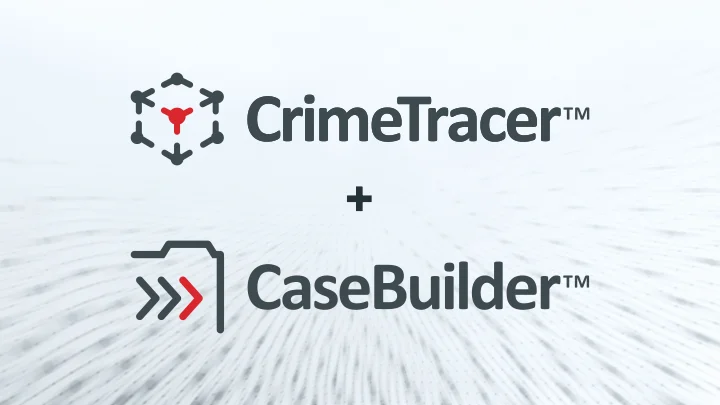
Want to handle a surplus in leads but not sure how? Check out our law enforcement lead scoring tips to managing a large-scale criminal investigation, no matter the agency size.
When a large-scale criminal investigation happens, and a call center is established to handle the thousands or even tens of thousands of leads in a high-profile case, there are some best practices to follow. Establishing an organized, systematic and efficient workflow guarantees criminal investigators receive critical investigative leads in the fastest timeframe possible.
Here are our four law enforcement lead scoring best practices – and how you can implement them in your law enforcement agency.
- Establish your tip hotline immediately
- Select a dedicated team of criminal investigators to score leads
- Use experienced criminal investigators to answer the hotline
- Deploy best-of-class software in your call center
Establish your tip hotline immediately
As soon as time allows, coordinate with print and television media and use your agency’s social media accounts to drive all lead-focused phone calls to a centralized call center. This might seem like something simple, but it’s a critical step that opens the lines of communication between your agency and the public at large. Once the hotline is established, you can intake, review, score, assign and follow-up on leads without delay.
Select a dedicated team to score leads
Law enforcement lead scoring requires police members with a deeper understanding of the on-going criminal investigation than the members assigned to intake the leads. Members assigned to the scoring team should be updated regularly on the status and direction of the investigation and have access to review leads that were assigned, investigated and closed.
This deeper involvement and understanding lets the team properly score and assign leads or close them upon intake because they are duplicates or and have already been investigated and closed out already, preventing the misuse of limited investigative resources. This also helps to advance the criminal investigation by using investigative resources more efficiently. Lead scoring changes moment to moment and is driven by the investigative process. By switching out members on the lead scoring team, you lose the ability to make context-based lead-scoring decisions … and ultimately wind up impeding the criminal investigation instead of facilitating it.
Use experienced criminal investigators to answer the call center hotline
Call center workflows are more than answering a call and recording the information provided by the caller. The purpose of the call center hotline is to conduct a phone interview with every caller using the call center staff comprised of skilled criminal investigators who are capable of eliciting as much information from a caller as possible.
Experienced criminal investigators understand the need to record more than just the words of the caller—they can sense and know how to record a caller’s demeanor, accent, phraseology used, discern statement flaws, and elicit additional information to confirm claims or establish credibility. All of the elements to a proper phone interview can only be done by an experienced police criminal investigator.
Remember the phrase, “A chain is only as strong as its weakest link.” In the call center, the hotline staff is likely the weakest link. You may never get a second chance to interview an anonymous caller, so expecting a member of your call center to record vital – and often subtle — details of a phone interview when they have no skill and training is expecting too much.
Deploy best-of-class law enforcement tips and leads management software in your call center
No call center can operate from a paper-based system when call volume could reach thousands or tens of thousands of calls. Without a comprehensive lead case management system, the investigative leads collected will either be reviewed and scored at a much slower pace, incorrectly prioritized and assigned, or remain lost in a pile and never investigated. Ultimately, any delay can deliver a lethal blow to a criminal investigation.
Ensure your police lead case management software allows for the intake, scoring and assignment of leads. It should be able to:
- Create multiple investigative follow-up assignments for a single lead
- Monitor the activity of each criminal investigator assigned to investigate a lead
- Review investigative follow-up activity, make additional assignments
- Create a new criminal investigation from an existing lead
- Close investigative leads
- Disseminate information to criminal investigators
It is no longer acceptable for lines of communication to be closed or delayed due to technology gaps. A comprehensive police case management system will provide an agency, large or small, with the software tools needed to manage the next large-scale or high-profile incident efficiently, effectively and professionally.
Bottom line
Law enforcement lead scoring has become an essential system for all public safety agencies to add to their investigative toolkit. There are three maxims for agencies charged with investigating crimes:
- No one knows when the next high-profile or large-scale incident will occur
- Incidents can occur anywhere and at any time regardless of the size and capability of an agency
- The number of investigative leads coming into an agency driven by social media is overwhelming
By establishing a centralized hotline, staffing the call center with experienced police investigators, and supporting the call center with a best-of-class law enforcement lead case management system, every agency—large or small—will be prepared to handle the call volume and provide the public with the investigative response they deserve.
Get in touch to learn more about CaseBuilder™.





